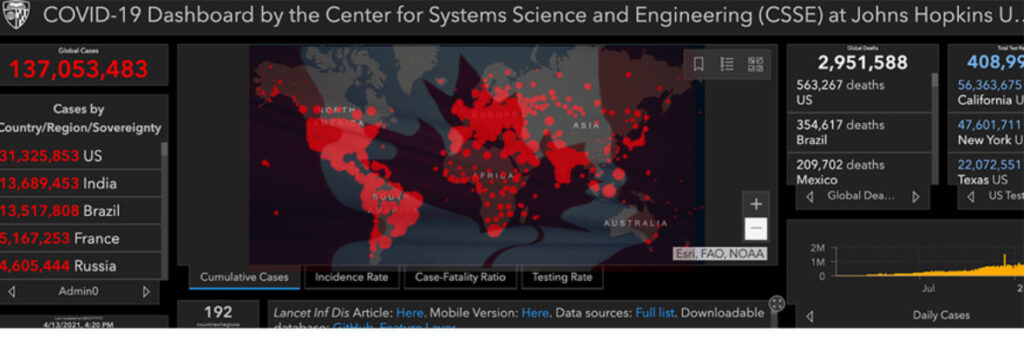‘Vaccination Passports’ – loaded words these days. Viewed by some as a threat to “freedoms” by others as the arrival of freedom to travel. Much of the chatter is fraught with distortion, misconception and wishful thinking. Many experts in the field agree that some of the controversy is caused by the name itself – the document in question is in fact a health certificate – not much different than existing health certificates that prove one has had the required shots before travelling to certain countries. Work continues on a global solution, but current Canadian protocols may make us ineligible.
Last week at a meeting of the International Forum for Travel and Tourism Advocates (IFTTA) the question of such ‘vaccination passports’ was discussed. Travel Industry Today had an opportunity to talk to Max Johnson, a tourism consultant at TTJ Tourism, who raised some very pertinent issues, saying, “frankly, I’m astonished that more people haven’t picked up on it.”
The global issue
No sooner had the World Health Organization (WHO) confirmed that the coronavirus was in fact a global pandemic, when dozens of companies announced plans to offer digital health certificates or other appropriate documentation for travellers. While quick off the mark, many of these entities were ignorant of the regulatory, ethical and technical challenges involved in actually producing such certification.
A global health certificate will likely need certain things – among them access to a country’s official records of vaccinations and a secure method of identifying and linking individuals to their specific health information.
Were such a digital certificate to be accepted by countries globally, it will probably have to adhere to common standards set by organisations such as the WHO, the CDC or the EU.
Currently the foremost companies reportedly working on the issue of a global medical certificate are IATA, Apple and Alphabet (Google’s parent company).

Johnson told us that he was in no way, “questioning the scientific or epidemiological process or findings – that’s got nothing to do with it. The important thing is that, as we come out of these dark days of COVID rules, we’re going to require some credential that will prove to whosoever needs to have it proved, that we have been vaccinated. I think that’s very likely and, in fact, the Icelanders were the first people to have not only stipulated this, but defined it. (If you want to travel to Iceland) the onus is on you to prove to the Icelandic Immigration Authority that you fulfill the requirement. Georgia, one or two other countries, have already said, “proof of vaccination”.
“And this is very clearly delineated on the Icelandic entry requirements. If you have two Pfizer shots four months apart, it doesn’t matter what the Province of Manitoba (or anyone else) says. Not Health Canada – or the Health Department at Kazakhstan, it doesn’t pass muster. It’s final.” Here are the Icelandic requirements when it comes to vaccination certificates.
Timelines
Johnson’s point is that the required credential is verification that the vaccination(s) specified have been administered correctly – in other words, according to – and this is the most important bit – the manufacturer’s protocol.
For the three major manufacturers the second shot protocols are as follows:
• Pfizer – 21 days
• Astra Zeneca – 8 to 12 weeks
• Moderna – 28 days (which ‘if necessary’ can be extended to 42 days)
In Canada however, this March, The National Advisory Committee on Immunization (NACI), changed its guidelines on the recommended time between doses of COVID-19 vaccines from three weeks to four months. That is the longest interval recommended by any country so far.
And that could mean that Canadians would not be eligible for a vacation certificate, or passport, or whatever you choose to call it, because they simply would not meet the protocols set by the vaccine manufacturer and likely to be required by countries accepting the global certification.
A population level experiment
Critics have noted that prior to the pandemic, NACI met just three times a year to discuss issues related to vaccines for influenza, mumps, measles and other viruses.
Dr. David Naylor, co-chair of Canada’s COVID-19 Immunity Task Force, was quoted as saying, “NACI’s committees are basically made up of volunteers, many with heavy daily responsibilities during the pandemic.”
NACI according to a CBC report, based its revised guidelines on “emerging real world evidence and the reality of Canada’s limited supply of COVID-19 vaccines, although there is no research yet on the long-term effect the delay could have on immunity to the coronavirus disease.
“But Canada’s chief science adviser, Mona Nemer, has said the decision to delay second doses amounted to a ‘population level experiment.’”
The United Kingdom has delayed second doses by up to three months, but no other country is known to have delayed them by up to four months. Spokespeople from Pfizer and Moderna said they recommend sticking with intervals of three and four weeks for their respective vaccines as studied during clinical trials.
Politics and global protocols.
IATA, Alphabet and Apple are all trying to come up with some overriding credential, says Johnson, but there are difficulties.
“A huge issue is that, in general, medical policy is delegated to regional and local government. In Canada, for example, we have 14 different (provincial) health authorities with 14 different protocols. So, is anybody going to authorize credentials? In the States, there are 50-plus Guam and Puerto Rico.
One would think the World Health Organization (WHO) would weigh in on the subject, and they did, but their position posted on their website on February 5th this year, seems out of sync with current thinking.
WHO states:
“At the present time, it is WHO’s position that national authorities and conveyance operators should not introduce requirements of proof of COVID-19 vaccination for international travel as a condition for departure or entry, given that there are still critical unknowns regarding the efficacy of vaccination in reducing transmission. In addition, considering that there is limited availability of vaccines, preferential vaccination of travellers could result in inadequate supplies of vaccines for priority populations considered at high risk of severe COVID-19 disease. WHO also recommends that people who are vaccinated should not be exempt from complying with other travel risk-reduction measures.”
Johnson maintains that at the moment the best solution seems to be a certification requirement that one has had a vaccine administered in accordance to the manufacturer’s protocol.
However, he is also aware of the political issues.
“The moment it becomes global, and you can bet your life Canada, being Canada, the most risk-averse nation on the face of the planet, will require vaccination certificates for people to come here, whatever they may say about their own citizens having them.
“And then you’re going to have the situation where, will Canada be obliged to recognize Sputnik (Russia)and Sinopharm (China) as valid, even though they’ve said that they don’t pass muster in Canada? But unless the Russians and the Chinese are part of the appeal, there won’t be any international certificate.”
Some international solutions
EU leaders have backed a Green Certificate which will be proof that a person has been vaccinated against COVID-19, received a negative test result or recovered from COVID-19. The certification will come in a digital and/or paper format, have a QR code, be in a national language and English, will be valid in all EU countries, and be free of charge.
European leaders plan for the certificate to be in place for the summer but that deadline might prove overly ambitious.
The aim of the EU pass is to get travel moving across borders of the 27 member states, “without discrimination.” The EU also wants to include non-EU countries such as Norway, Iceland and Switzerland.
For the moment however, restrictions on non-essential travel remain in place.
Denmark, like several other European countries already has a secure digital ID system called NemID, and the Coronapas will be linked to that. NemID gives Danes access to various online platforms, including a digital listing of an individual’s health records and test results.
Israel will reopen next month (after a year) to foreign tourists who must be tested for coronavirus before boarding flights to Israel and must present a serological test to prove they have received a COVID-19 vaccine.
In the US, the Federal Government has passed the issue on to the States or to private businesses, which has already led to disparate decisions – Hawaii going ahead with a ‘vaccine passport programme’ and the governors of Texas and Florida banning agencies and businesses from requiring such a document for services, on the grounds that the requirement would infringe on individual freedom and privacy.
Different strokes
A new online Leger poll, suggests the idea is divisive on either side of the border.
Just over half of Canadian respondents, 52%, said they support showing proof of vaccination to get into events or venues, compared with 43% of their US counterparts.
One-third of Canadians, or 33%, said they opposed the idea, compared with 36% of Americans who felt the same way. In the US, 21% said they were undecided, compared with 15% in Canada.
Online surveys cannot be assigned a margin of error because they do not randomly sample the population.
Meanwhile a report in the Toronto Sun this weekend showed Canadian business leaders divided on the issue. “Of 800 executives and business managers polled online or by mobile device during March 2021, 59% leaned towards supporting vaccine passports with 33% opposed.”
“When asked about the use of vaccine passports to allow employees access to the workplace only 48% strongly supported the measure versus the 28% who were strongly opposed, according to the survey conducted by Modus Research for the Business Monitor.”
“With it came to governments easing or tightening public health restrictions, 68% of vaccine passport opponents said they supported an easing of rules while 46% of vaccine passport supporters favoured a tightening of measures.”
Making choices
Privacy and human rights issues are a serious consideration. How confident can users be that their sensitive health data will be stored securely and not utilized for purposes other than those intended by an app developer or the various governments? And does the very existence of the so called “vaccine passport” (health certificate) mean that those who choose not to get vaccinated, and thus be unable to produce one, will have their travel restricted?
The fact is, vaccine certification for travel could likely be dependent on the country to which one is travelling. If you want to visit a destination and they want you to prove you have been vaccinated – well, you do it, or you go someplace else, or you stay home.
Perhaps rules will be extended to permit entry with negative COVID tests, before and/or on arrival, and you can be pretty sure that a quarantine will also be required – perhaps even with provable vaccine certification.
Right now, countries have their own rules to protect their own citizens – as they should. The question is, will we – can we – have global uniformity in travel documentation – particularly when countries, such as Canada, risk stretching the rules beyond the manufacturers’ recommended protocols?
Time will tell. It’s a whole new world.

